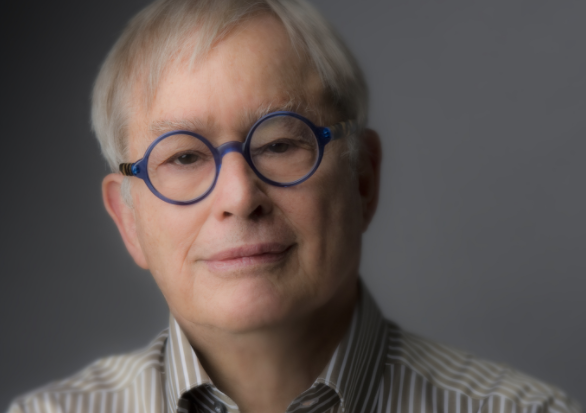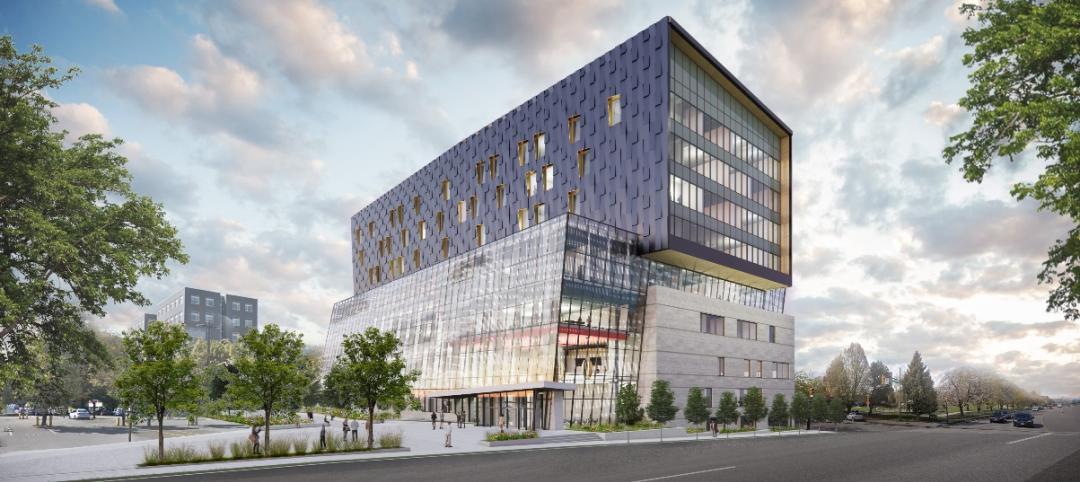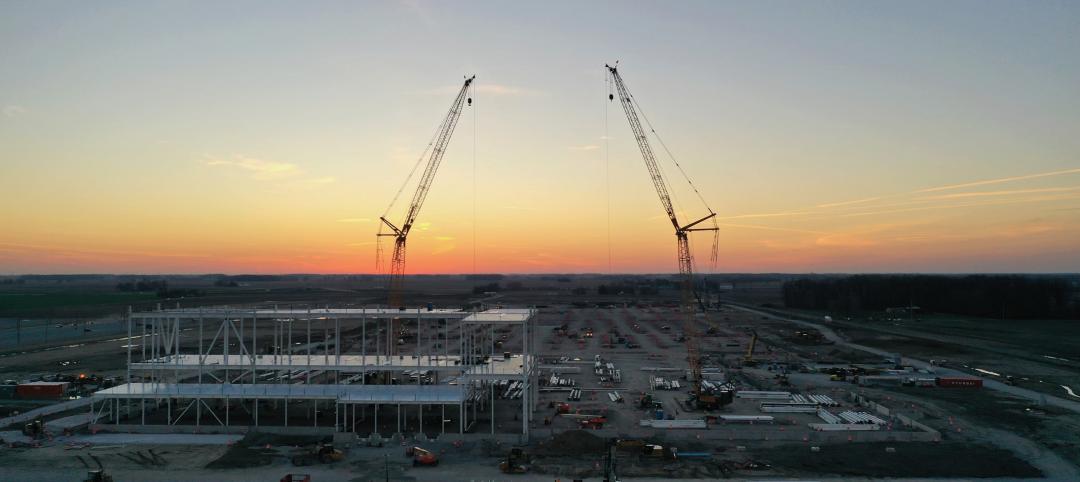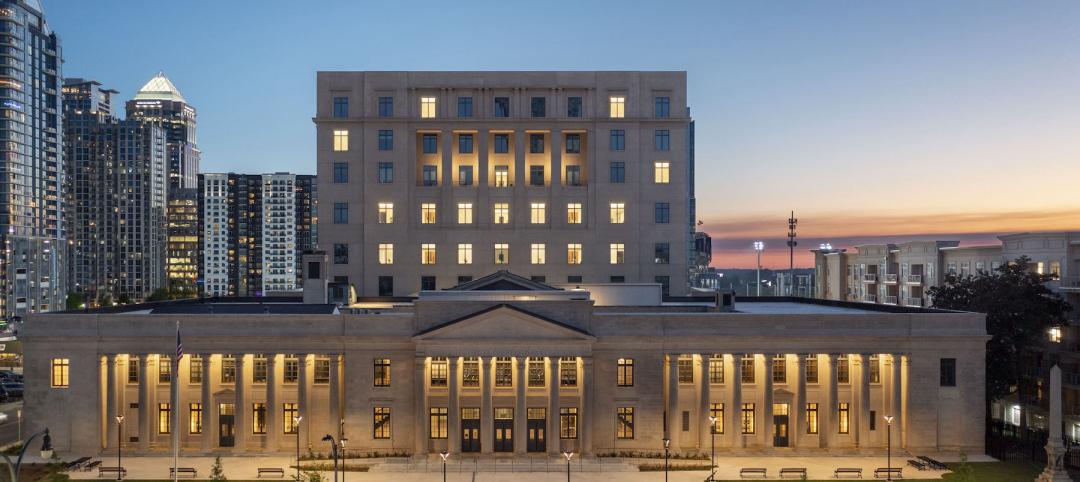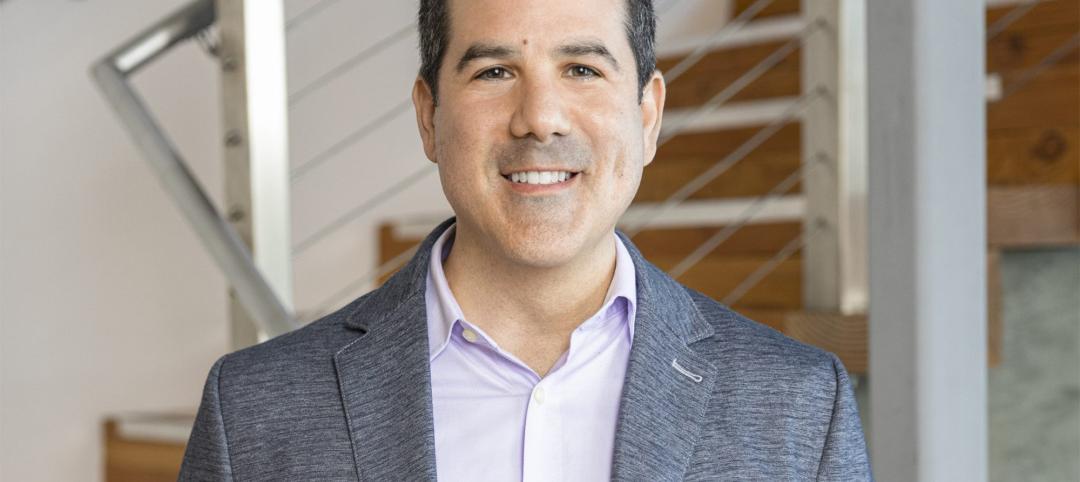ZGF Founding Design Partner, Robert Frasca, FAIA, passed away on January 3 in Portland, Ore., at the age of 84 from complications of CLL (chronic lymphocytic leukemia).
Frasca was a driving force in transforming the architectural firm from its early beginnings as a regional office into one of the nation’s largest practices, with 600 design professionals across six offices in the U.S. and Canada. Based on a portfolio of work under Frasca’s direction, ZGF was honored with the prestigious AIA Architecture Firm Award in 1991.
Encouraged by his mentor, Pietro Belluschi, Frasca arrived in Portland in 1959, equipped with a Master of City Planning from the Massachusetts Institute of Technology (1959), where Belluschi was Dean. He received his Bachelor of Architecture from the University of Michigan in 1957. He worked part time at the firm Wolff and Zimmer Architects and part time at the City Planning Commission. Several months later Frasca was awarded the George G. Booth Traveling Fellowship from the University of Michigan, given to an outstanding graduate, and traveled throughout Europe. On returning to Portland (Norm Zimmer sent him a one-way ticket), Frasca rejoined Zimmer and, along with Brooks Gunsul, formed the firm, Zimmer Gunsul Frasca (1966).
In an era when buildings were most often conceived as isolated monuments with little regard to the surrounding urban fabric, Frasca innately understood the importance of a strong and dynamic architecture to unite the entire community. He quickly became the consummate “Citizen Architect” creating notable work that ranged from civic and institutional master plans to individual buildings that elevated the quality of the built environment and the overall urban experience.
He played an important role in the evolution of Portland as a livable city and was instrumental in shaping its skyline and integrative spirit. He designed many of Portland’s most important civic projects, including Waterfront Park, Oregon Historical Society, Oregon Museum of Science and Industry, Justice Center, Oregon Convention Center, and Portland International Airport—the latter consistently ranked as one of the country’s most admired airports.
 Frasca designed many of Portland, Ore.’s most important civic projects, including the Portland International Airport. Photo courtesy ZGF
Frasca designed many of Portland, Ore.’s most important civic projects, including the Portland International Airport. Photo courtesy ZGF
He executed the master plan and designed many buildings for Reed College and for Oregon Health & Science University (OHSU), as well as the Multnomah Athletic Club, KOIN Tower, and Portland General Electric’s headquarters (now the World Trade Center).
Expanding on his integrative design approach, Frasca pioneered a holistic and humane architectural understanding of research facilities and pediatric hospitals—one that focused on occupant wellness and intellectual collaborations in the service of scientific discoveries and positive patient outcomes for the world’s most pressing diseases. He integrated nature, healing gardens, and art into his buildings long before research proved their importance. The first buildings of this type that he designed were the Vollum Institute and Doernbecher Children’s Hospital at OHSU. These buildings put ZGF on the map, and shortly other institutions were seeking their expertise. These included Children’s Hospital of Los Angeles, Children’s Hospital Colorado in Denver, Fred Hutchinson Cancer Research Center in Seattle, the National Institutes of Health in Bethesda, the Mortimer B. Zuckerman Research Center at Memorial Sloan-Kettering Cancer Center in New York City, the Dana-Farber Yawkey Cancer Institute, Center for Cancer Care in Boston, The Max Planck Institute for Neuroscience in Florida, and the Carnegie Institute for Science in Baltimore.
As his reputation grew, Frasca designed science and engineering buildings, medical school buildings, and research facilities for premier universities across the country, including the University of California-Berkeley, Cornell University, Duke University, Stanford University, Williams College, Emory University, and Johns Hopkins University. The Robert Mondavi Wine and Food Institute at the University of California Davis combined his love of wine, food, and science. These facilities always focused on the student and faculty experience using great landscape, natural light, atrium spaces, informal study and lounge areas, and places to meet serendipitously.
Working with the State Department in their Design Excellence program, Frasca designed U.S. embassies and consulates in Istanbul, Sofia, and Cape Town, South Africa. A unique project was the LDS Conference Center in Salt Lake City across Temple Square from the Mormon Tabernacle, with seating for 21,000 and a four-acre green roof garden designed with landscape architect Laurie Olin, a frequent collaborator.
He was committed to designing work that enhanced collaboration, and the team-based approach he nurtured at ZGF allowed countless young designers to grow and thrive at the firm. In addition to his practice at ZGF, Frasca shared his expertise with students and the broader profession including chairing the AIA National Honor Awards program, the AIA Committee on Design, and the AIA Topaz Awards program. He served on multiple jury selection committees, and performed peer reviews for numerous projects. He also spent 27 years on the University of Washington Architecture Commission, shaping that campus by championing other talented designers.
Frasca was born in Niagara Falls, N.Y., to parents who immigrated from Italy. He is survived by his wife, Jeanne Giordano, his children Andrea and Jason by his first marriage to Marilyn Buys (deceased in 2000), his grandson Nicolas, his sister Joyce Broderson, his nephew, David, and sister-in-law, Lorraine Giordano.
Donations in memory of Bob Frasca can be made to:
The Trustees of Columbia University
Notation: Dr. Nicole Lamanna CLL Research Gift Fund/memory of Bob Frasca
Marilyn Mullins
Senior Director of Development
Columbia University Medical Center
100 Haven Avenue, Suite 29D
New York, NY 10032
Related Stories
Higher Education | Aug 7, 2023
Building a better academic workplace
Gensler's David Craig and Melany Park show how agile, efficient workplaces bring university faculty and staff closer together while supporting individual needs.
University Buildings | Aug 7, 2023
Eight-story Vancouver Community College building dedicated to clean energy, electric vehicle education
The Centre for Clean Energy and Automotive Innovation, to be designed by Stantec, will house classrooms, labs, a library and learning center, an Indigenous gathering space, administrative offices, and multiple collaborative learning spaces.
Green | Aug 7, 2023
Rooftop photovoltaic panels credited with propelling solar energy output to record high
Solar provided a record-high 7.3% of U.S. electrical generation in May, “driven in large part by growth in ‘estimated’ small-scale (e.g., rooftop) solar PV whose output increased by 25.6% and accounted for nearly a third (31.9%) of total solar production,” according to a report by the U.S. Energy Information Administration.
Resiliency | Aug 7, 2023
Creative ways cities are seeking to beat urban heat gain
As temperatures in many areas hit record highs this summer, cities around the world are turning to creative solutions to cope with the heat. Here are several creative ways cities are seeking to beat urban heat gain.
Government Buildings | Aug 7, 2023
Nearly $1 billion earmarked for energy efficiency upgrades to federal buildings
The U.S. General Services Administration (GSA) recently announced plans to use $975 million in Inflation Reduction Act funding for energy efficiency and clean energy upgrades to federal buildings across the country. The investment will impact about 40 million sf, or about 20% of GSA’s federal buildings portfolio.
MFPRO+ New Projects | Aug 4, 2023
Nashville gets 'first-of-its-kind' residential tower
Global architecture firm Goettsch Partners announces the completion of Alcove, a new 356-unit residential tower in Nashville, Tenn., developed by Giarratana LLC.
Industrial Facilities | Aug 3, 2023
The state of battery manufacturing in the era of EV
One of the most significant changes seen in today’s battery plant is the full manufacturing process—from raw materials to the fully operational battery.
Government Buildings | Aug 2, 2023
A historic courthouse in Charlotte is updated and expanded by Robert A.M. Stern Architects
Robert A.M. Stern Architects’ design retains the original building’s look and presence.
Hotel Facilities | Aug 2, 2023
Top 5 markets for hotel construction
According to the United States Construction Pipeline Trend Report by Lodging Econometrics (LE) for Q2 2023, the five markets with the largest hotel construction pipelines are Dallas with a record-high 184 projects/21,501 rooms, Atlanta with 141 projects/17,993 rooms, Phoenix with 119 projects/16,107 rooms, Nashville with 116 projects/15,346 rooms, and Los Angeles with 112 projects/17,797 rooms.
Architects | Aug 1, 2023
Ware Malcomb announces hire of Jason Golub as Regional Director
In this role, Golub is responsible for the overall leadership and continued growth of the office.


